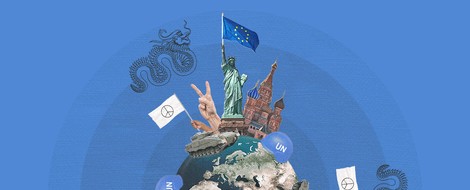Your podcast discovery platform
Curious minds select the most fascinating podcasts from around the world. Discover hand-piqd audio recommendations on your favorite topics.

piqer for: Globalization and politics Global finds Climate and Environment
Javier is a Berlin-based multimedia journalist. He completed a MA in International Journalism at City, University of London and is focused on humanitarian and conflict issues.
With experience in several countries, he's covered the refugee crisis, Turkey's coup attempt and the Kurdish conflict.
Among others, his work has been published at ABC News, Al Jazeera, Channel NewsAsia, RBB, IRIN News, El Confidencial, Público or Diario ABC.
How Dangerous Is Viktor Orbán For Europe?
Hungarians are heading to the polls on April 8. The central European country will decide its next prime minister — and all eyes are on Viktor Orbán, as surveys suggest his party is clearly leading.
Is that something that should worry us? According to this Guardian's op-ed by poet and translator George Szirtes, yes. A lot.
Hungary today is on the verge of full-blown autocracy. And now, with Viktor Orbán’s threat of “moral, political and legal” vengeance to come after 8 April vote, the country is, as the rest of Europe cannot fail to see, in the act of stepping over the threshold.
The result of this election will echo far beyond Hungary's borders. What's at stake is the idea of Europe, our identity as Europeans.
Orbán is one of the leaders of the so-called illiberal movement or alliance. Along with Poland's government and political forces in several other countries, Orbán is trying to avoid further European integration and advocates tough (even tougher than the current ones) policies against migrants and refugees. And he wants to do so under the umbrella of extremely dangerous and powerful ideas — nationalism, religion and cultural identity.
Some claim Orbán isn't that much of a threat. At the end, people espousing those kinds of ideas are still a long way from forming majorities in Europe's most influential countries: France and Germany.
However, there are many reasons to be scared.
French and German far-right parties keep growing, and who knows how much bigger they can become.
And at the same time, center-right parties are shifting their messages more and more to the right. Here is precisely where Orbán plays a major role as a bridge towards ultraconservatism.
He says and does things other conservatives wouldn't dare, but he's seen as an example by mainstream parties in, for example, Germany. He's even supported by the president of the European center-right party.
With a new mandate, Orbán will have plenty of time to continue normalising and spreading his inflammatory and unacceptable policies.
